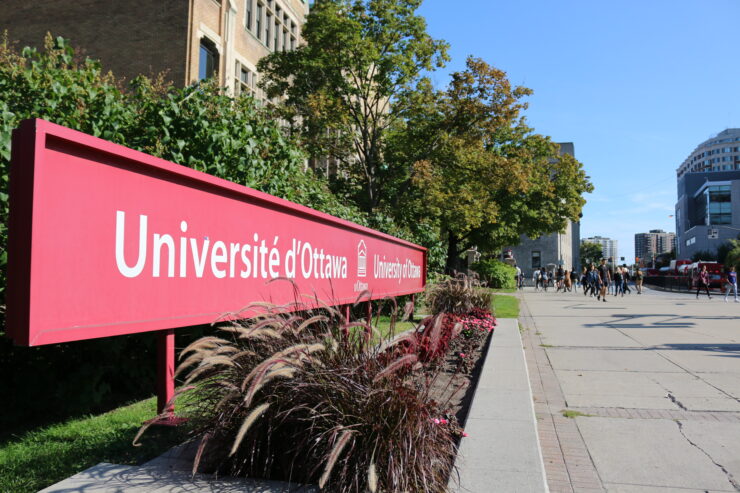Bell to lay off 4800 employees; selling 45 radio stations; shutting down others
Just before going to bed on the night of Feb. 7, I stumbled upon a tweet that gave me a weird feeling of déjà vu. Once again, it was reported that Bell Media was laying off a sizeable chunk of its workforce and shuttering radio stations.
The move was confirmed the following morning and comes exactly two weeks after the 2024 edition of “Bell Let’s Talk Day”, an advertising campaign dedicated to raising awareness and combatting stigma about mental illness. Move over, greenwashing. ‘Wellbeing washing‘ is here, and by the looks of it, here to stay.
But like I said, this feeling of anger and sadness wasn’t a new feeling for me. Nor for the many employees who have been laid off by Bell in years prior. And I’m not feeling that way just because I have aims to work in this industry in the future, aims that are all but dead at this point. Well-sourced and funded journalism is imperative for the functioning of a healthy democracy. So, it’s not just anger and sadness that people are feeling today — it’s also fear.
Three years ago — almost to the day — Bell closed its sports radio stations in Hamilton, Vancouver, and Winnipeg. The cuts came after the company had received $122 million dollars from the federal government’s COVID-related Canada Emergency Wage Subsidy. In essence, taxpayers were taking the hit for Bell to stay afloat and continue employing their workers during the pandemic — but Bell was instead firing their employees and using that money to replace lost revenue.
And let’s be real, Bell didn’t even need that subsidy. When those cuts happened in 2021 BCE Inc. was fresh off reporting a total net income of $1.865 billion dollars for the year prior. Their shareholder dividend even increased in the fourth quarter of 2020, from 83.25 cents per share to 87.5 cents per share.
The erosion of Canada’s media landscape is scary. In both print and electronic media, Canada’s Competition Bureau is an afterthought for companies, and monopolies run roughshod. Some politicians are further calling for the defunding of news organizations like CBC which exist to serve impartial local news to the common folk, advancing the corporate media companies’ apparent mission of destroying high-quality journalism.
Among the “restructuring”, the Canadian Press reported that weekday noon newscasts will end at all CTV stations save for Toronto; and all 6 p.m. and 11 p.m. newscasts at all stations except for Toronto, Montreal, and Ottawa would also be canned. “Multi-skilled journalists” would also replace news correspondents and technician teams, as part of the changes.
B.C. Premier David Eby responded to the cancellation of Vancouver’s noon and weekend newscasts in a press conference the afternoon of Feb. 8. “Bell, and corporations like Bell, have overseen the assembly of local media assets that are treasures to local communities. They bought them up, like corporate vampires, [and] they sucked the life out of them [by] laying off journalists. They have overseen the ‘crapification’ of local news.”
Eby continued by calling for consequences for the media oligarchies. “Bell, and other companies like Bell that have done this, need to be held accountable for the information atmosphere that we find ourselves in today. On behalf of all of the families of the journalists, the media outlets, on behalf of all of British Columbia that have watched their local news stations slowly turn to garbage by these companies who now say — unsurprisingly — that there’s not a lot of support for them, I just want to say, shame on you.”
The premier further went on to plead with the federal government for action. “I call on the federal government to stop this assembly of media properties that are not actually properties to the local communities that they serve.”
This isn’t a political issue or even a very complicated one. Anyone who flips through television or radio stations in Canada already knows that every “local” channel operated by Bell or Rogers already look and sound almost indistinguishable from each other. Local news is dying. And this announcement by Bell is just one more step towards a completely homogeneous media atmosphere in our nation. Their motive is purely profit.
One possible saving grace in the deal is the sale of radio stations to local organizations, such as Durham Radio Inc. and Maritime Broadcasting System Limited. While these stations will likely still air simulcasts of other programs, at least the hope is that they will be somewhat local simulcasts.
Like I said, it’s not all bad news. Shareholders, rejoice! Announced alongside the cuts was news that your common share dividend per quarter is increasing from 96.75 cents per share to 99.75 cents per share. I hope the trade-off was worth it. As Lisa LaFlamme, the ex-CTV evening news anchor ousted in 2022 put it, “As journalism dies so goes democracy.”






